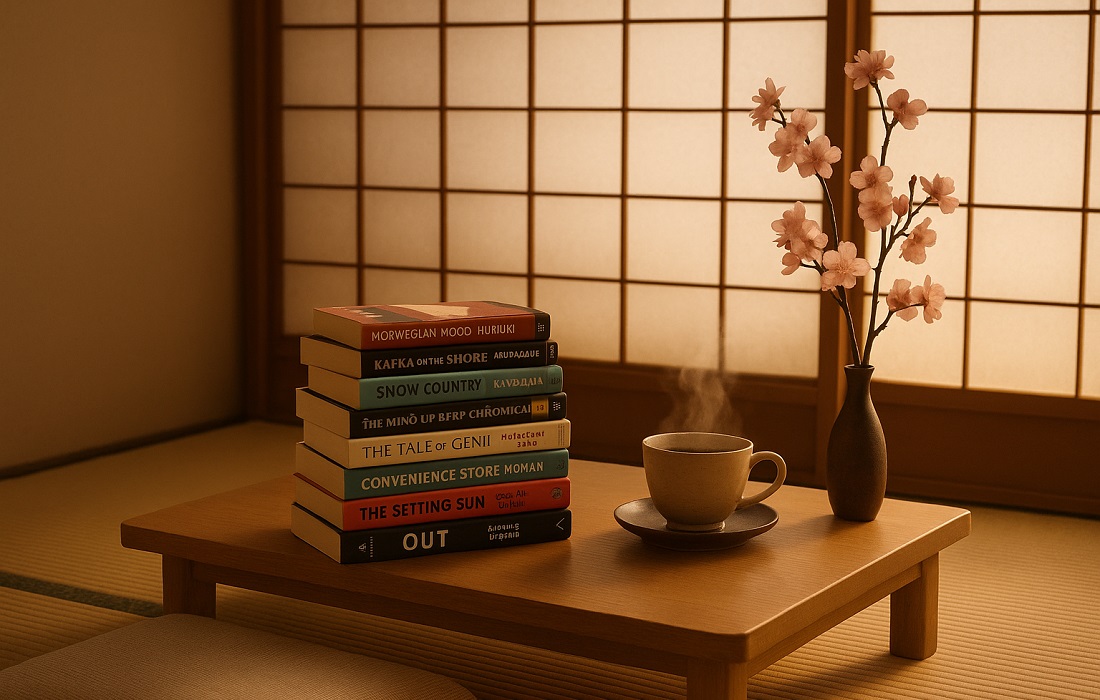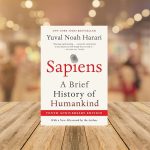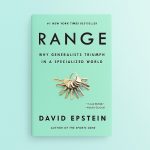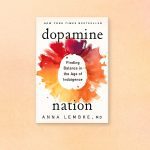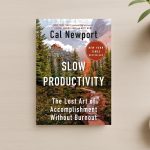Japanese literature offers a rich tapestry of storytelling that blends beauty, philosophy, and emotional depth. This curated list of the Top 10 Japanese Novels to Read Before You Die features timeless classics and modern masterpieces drawn from Amazon and New York Times bestsellers. From the poetic elegance of Snow Country to the surreal mystery of Kafka on the Shore, these works explore love, loss, identity, and the human spirit. Whether you’re stepping into Japanese fiction for the first time or deepening your literary journey, these novels provide unforgettable windows into Japan’s culture, history, and heart.
Top 10 Japanese Novels
1. Norwegian Wood — Haruki Murakami
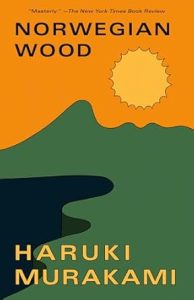
Published in 1987, Norwegian Wood catapulted Haruki Murakami from a cult favorite to an international literary star. Set in 1960s Tokyo, the novel is a melancholic yet tender coming-of-age story centered on Toru Watanabe, a college student navigating love, loss, and self-discovery. The tale follows his deep connection with Naoko, a beautiful but emotionally fragile woman struggling to cope with the death of her boyfriend, who was also Toru’s best friend. Murakami contrasts this relationship with Toru’s growing bond with Midori, a lively and vibrant classmate, creating a poignant tension between grief and hope. Written in Murakami’s signature style, blending realism with lyrical introspection, the novel captures the zeitgeist of a generation grappling with alienation and rapid societal change. For beginners, it offers an accessible entry into Japanese fiction, stripped of Murakami’s usual surrealist elements while retaining his depth and emotional resonance. It’s not just a love story—it’s a story of memory, mental health, and the quiet ways we carry our wounds. Norwegian Wood remains essential reading for anyone exploring modern Japanese literature.
2. Kafka on the Shore — Haruki Murakami

Kafka on the Shore is Murakami at his most surreal yet emotionally gripping. This 2002 novel intertwines two seemingly unrelated narratives: teenager Kafka Tamura, who runs away from home to escape an Oedipal prophecy, and Nakata, an elderly man who lost his cognitive abilities during WWII but gained the power to talk to cats. Their journeys, suffused with dreams, metaphysical puzzles, and literary references, explore themes of fate, identity, and metaphysical reality. Murakami layers Japanese folklore, Western philosophy, and surreal dreamscapes to create a narrative where time and logic fold in on themselves. Despite its complexity, beginners can enjoy the vivid characters and compelling mystery while allowing the unanswered elements to linger—a hallmark of Japanese literary minimalism. Its fluid blend of noir, magical realism, and myth makes this novel a modern classic, with profound insights into loneliness, resilience, and the search for self. Critics worldwide, including The New York Times, have lauded its bold structure and hypnotic prose, making it an unforgettable read before you die.
3. Snow Country — Yasunari Kawabata
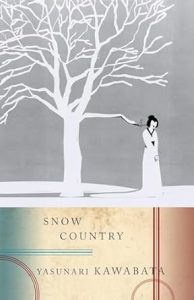
First published in 1947, Snow Country earned Yasunari Kawabata—Japan’s first Nobel laureate in literature—global recognition for his delicate, painterly prose. The novel centers on Shimamura, a wealthy, detached Tokyo dilettante, and his complex relationship with Komako, a lively geisha living in a remote snowy hot-spring town. Kawabata’s minimalist style captures the fleeting beauty and unspoken sadness that permeate Japanese aesthetics, from monochrome landscapes to unfulfilled human desire. The snow country setting itself becomes a character—silent, isolating, yet breathtaking. At its core, the novel examines longing, impermanence, and emotional distance, reflecting the Buddhist concept of mono no aware (the gentle sadness of things). For beginners in Japanese literature, this book offers an immersion in postwar sensibility and traditional poetic forms, expressed in prose that is deceptively simple yet emotionally layered. Kawabata’s ability to evoke profound emotion in few words has influenced generations of authors. Snow Country is a meditative, haunting work best savored slowly, catching the subtle shifts in rhythm and tone like snowflakes melting in your hand.
4. The Wind-Up Bird Chronicle — Haruki Murakami
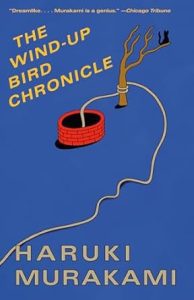
Sprawling, intricate, and deeply human, Murakami’s The Wind-Up Bird Chronicle (1994–95) is a sweeping epic of personal and political mystery. Toru Okada, an unassuming Tokyo man, embarks on a surreal investigation when his cat—and then his wife—disappears. What begins as a mundane search spirals into encounters with eccentric psychics, WWII veterans, and alternate realities. The novel blends historical trauma (Japan’s role in Manchuria) with metaphysical and psychological exploration, challenging readers to contemplate the hidden wars within the self. While complex, its episodic structure allows beginners to sink into self-contained scenes rich with symbolism, humor, and dark beauty. Murakami uses the wind-up bird’s mechanical call as a metaphor for fate’s unseen gears. The novel’s ambitious scope—oscillating between dream and reality—has earned it comparisons to Dostoevsky and García Márquez. For anyone seeking a deep dive into contemporary Japanese literature with philosophical resonance, The Wind-Up Bird Chronicle is a must-read.
5. The Tale of Genji — Murasaki Shikibu

Often hailed as the world’s first novel, The Tale of Genji was penned over 1,000 years ago by court lady Murasaki Shikibu. This Heian-period masterpiece chronicles the romantic and political life of Hikaru Genji, the “Shining Prince,” within the Imperial Court. Far from being merely historical, the novel captures timeless human emotions—love, jealousy, ambition—and provides an intimate lens into the aesthetics, customs, and moral codes of 11th-century Japan. With its vivid psychological portraits and poetic sensibilities, The Tale of Genji remains surprisingly modern in emotional depth. While its length and cultural references can challenge beginners, modern English translations (such as Royall Tyler’s or Edward Seidensticker’s) offer rich footnotes for guidance. For those willing to invest the time, the rewards are immense: a deeper understanding of Japanese sensibility, courtly art, and the delicate interplay of personal and political life. The Tale of Genji is more than a novel—it’s a cultural monument and essential life read.
6. Convenience Store Woman — Sayaka Murata
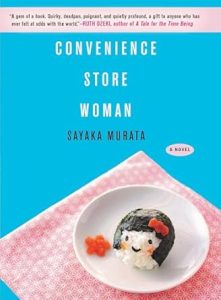
Sayaka Murata’s 2016 breakout hit Convenience Store Woman is a razor-sharp, darkly comic exploration of social conformity and identity in modern Japan. Keiko Furukura, a 36-year-old unmarried woman, thrives in the regimented world of a Tokyo convenience store after years of struggling to fit societal expectations. When pressured by family and co-workers to live a “normal” life, she faces a crisis of self-definition. Murata’s simple yet precise prose dissects the unwritten rules governing gender, work, and societal acceptance. For beginners, the novel’s brevity and humor make it an accessible yet profound introduction to contemporary Japanese fiction. Beneath its quirky surface lies a piercing critique of the cultural machinery that dictates how life “should” be lived. Convenience Store Woman resonates globally for its universal questions: Who decides what is normal? And what happens when we refuse to comply? This deceptively light novel will linger long past the final page.
7. The Setting Sun — Osamu Dazai
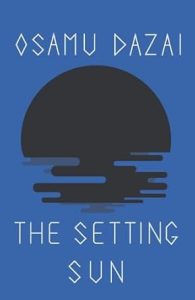
Published in 1947, The Setting Sun captures the existential malaise of postwar Japan through the eyes of Kazuko, a young aristocratic woman grappling with the decline of her family’s fortunes. Osamu Dazai, known for his confessional style, paints a raw portrait of a nation and people in transition. Themes of alienation, identity crisis, and moral breakdown run through the novel, reflecting Japan’s shift from feudalism to modernity under the shadow of defeat. Written in a direct, emotionally charged tone, it’s one of the most accessible entry points into Dazai’s work for beginners. It also resonates with universal questions of purpose and survival in a changing world. The Setting Sun is both a personal tragedy and a social document—Dazai’s sharp eye spares neither his characters nor his readers from uncomfortable truths.
8. Out — Natsuo Kirino

Out is a gritty, suspenseful crime novel that redefined the genre in Japan and earned Natsuo Kirino international acclaim. Set in Tokyo’s bleak suburbs, the story follows four women working the graveyard shift at a bento factory. When one of them murders her abusive husband, the others become entangled in covering up the crime—dragging them into a web of violence, betrayal, and moral decay. Kirino uses the thriller framework to dissect gender roles, economic despair, and the desperation of marginalized lives. For beginners, Out offers propulsive pacing balanced with psychological insight, making it a gripping yet thought-provoking read. It’s a visceral look at survival and solidarity in the underbelly of urban Japan.
9. The Samurai — Shūsaku Endō
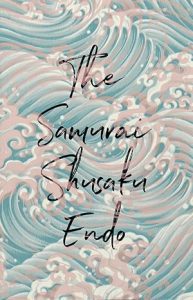
Shūsaku Endō’s The Samurai reimagines the journey of fictionalized 17th-century Japanese envoys sent to Mexico and Spain in hopes of establishing trade. At the heart is Hasekura Rokuemon, a humble samurai navigating foreign lands, faith, and political intrigue. Endō’s Christian perspective (rare in Japanese literature) provides a unique lens on cultural collision, loyalty, and spiritual doubt. The novel’s historical scope and intimate moral struggles give it both grandeur and intimacy. For beginners, it offers insight into the complexities of Japan’s isolationist era and the personal toll of duty. The Samurai stands as a meditation on cultural identity and the loneliness of those caught between worlds.
10. Kitchen — Banana Yoshimoto
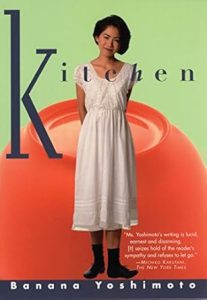
Banana Yoshimoto’s debut Kitchen (1988) remains one of Japan’s most beloved modern novels. Blending grief, love, and the healing power of home cooking, it tells the story of Mikage, a young woman who loses her last living relative and moves in with a friend, Yuichi, and his transgender mother, Eriko. Yoshimoto’s prose is simple yet infused with emotional clarity, capturing the quiet moments of connection that help us endure loss. For beginners, Kitchen is a tender introduction to contemporary Japanese literature’s focus on intimacy, acceptance, and resilience amid change. Universally human yet distinctly Japanese, it’s a gentle reminder of the nourishment we find in others—and ourselves.
Engage with Us: What Are Your Favorite Books?

